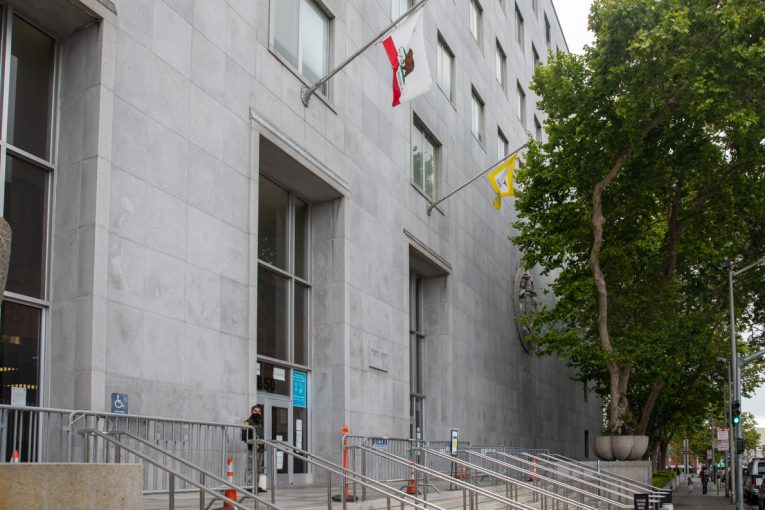
 By David M. Greenwald
By David M. Greenwald
Executive Editor
San Francisco, CA – San Francisco Judge Brian Ferrall granted a motion to suppress filed by the San Francisco Public Defender’s Office, ruling that the man who allegedly had narcotics found on his body, was illegally detained and then illegally arrested. After suppressing the search, the judge dismissed the charges for lack of evidence.
Judge Harrell immediately called into question the reasonableness of the detention and thus whether they had probable cause for an arrest.
The police claimed that the subject matched the description of a man with a stayaway order. However, the judge questioned whether they had any basis for believing that, given the widely divergent description of the subject to the description of the person in the stay away order.
On the basis of that detention, the subject gave a name that the police deemed to be false. But it was in fact, the man’s actual name. He lacked ID, but the police determined that it was a false name based on the fact that the man’s name did not appear in CLETS.
Assistant DA En-Ta Tu defended the police actions arguing it was a “reasonable mistake of fact at the time of detention” and that ultimately the arrest was based on them doing a search after being detained which allegedly turned up narcotics.
of fact at the time of detention” and that ultimately the arrest was based on them doing a search after being detained which allegedly turned up narcotics.
But the Judge was not buying this, noting that this was “an arrest for a false name that was not false” and it was “based on the assumption that his name was going to appear in CLETS.”
Therefore, he said that the arrested lacked probable.
According to Judge Harrell in his ruling, while the detention was initially valid, it’s validity “dissipated quickly.”
He said, “The first element that the people needed to do, in my view, but didn’t, was they did need to at some point demonstrate or prove that the stayaway order actually existed and was valid.”
He acknowledged that the man was ultimately not arrested for that, but that was used “to justify the detention.”
He said, “So we have no evidence that the stay away order was actually even current at the time.”
Worse yet, he said, we don’t have evidence that the bulletin, that the officer saw, “what it contained and the description of the defendant that it contained.”
For that reason alone, Judge Ferrall continued, “the people failed to meet their burden.”
The judge noted that the officer was perfectly justified in asking for the identification of the man, “based upon the suspicion that he was the same person as he had seen the subject of the stay away order.” But he said, when he couldn’t identify him, “the justification for continued detention were not supported by the evidence.”
The officer testified that the man gave a false name.
“That simply never happened,” the Judge stated. “The body worn camera and the transcript demonstrate that (the man) gave his correct time.”
He continued, “For the reasons I stated, merely because his name wasn’t found in the database was not a reason to conclude he was given a false name.”
The Judge said, had the officer received a physical description of the person, it would have been clear that the man in custody was not that person.
The man in the description was 5-6, 133 pounds, slender build, clear complexion, no facial hair. The man who was in custody was 5-9, 190 pounds, about 60 pounds heavier. His build was described as heavy. He had heavy acne rather than a clear complexion. And a beard and mustache.
“The fac that the officer didn’t have that description and gave no justification for not getting that description, makes the ongoing detention and ultimate arrest unjustified,” the Judge explained.
The Judge explained, “The only reason that the narcotics were found was because (the man) was ordered to put his hands behind his back and be prepared to be cuffed for the arrest and was cuffed for the arrest when the narcotics were found – so that arrest lacked probable causes.”
The judge then ruled that the “narcotics in his pocket, as well as the narcotics found elsewhere on his person or in his backpack were fruits of the unjustified detention and arrest. And those will be suppressed.”
The judge continued, “And with that, um, the people cannot meet their burden on the charged offenses. And so those offenses will be, uh, discharged pursuant to penal code 871.”

